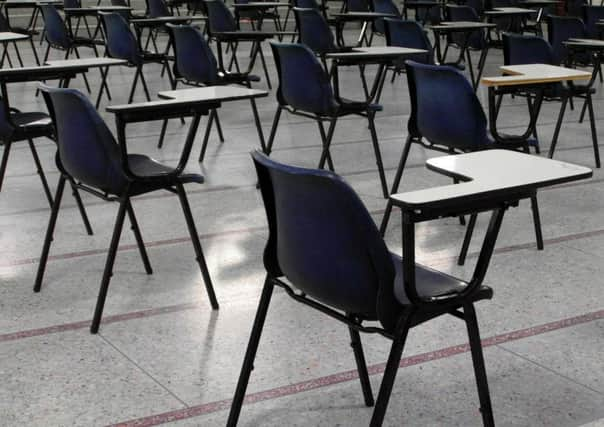IAIN WRIGHT: Return to 11-plus won't solve inequality


Some people will be celebrating a set of great results and looking forward to their next step on the education and training ladder.
Others will not have fared so well and will be weighing up the option of what would be best to do next.
Advertisement
Hide AdAdvertisement
Hide AdI remember all too well my GCSEs. I took them in 1988, and my year at school was the first to take these new examinations, which replaced the old O-levels and CSEs.
There was a sense that they were somewhat of an experiment, especially in the light of the well-established and well-understood exam systems.
Thirty years on, experimentation in education is risky. Successive governments have tinkered with the education and examination systems, which can cause uncertainty and confusion for students, their families and employers.
No education minister should lose sight of the fact that the education system is to impart knowledge and equip young people with the skills and tools needed to embark upon a successful life and career.
Advertisement
Hide AdAdvertisement
Hide AdGovernments often run the risk of prioritising structures in education rather than standards, and I can understand why there’s a tendency to do this – it feels as if work and reform is taking place and there is something immediate taking place, as opposed to waiting for years or decades to determine if education changes have made a difference.
The Conservative Government is proposing one of the biggest experiments in education policy for years – that of a return to grammar schools. I would be utterly opposed to such a move.
The notion that your life chances are determined by an exam at the age of 11 is just abysmal. Despite the fact that some commentators say that selective education helps social mobility, the evidence all points to the conclusion that selection at 11 entrenches poverty and inequality; the better off kids tend to get to the grammar schools while the less well off kids go to the secondary modern.
Quite how this helps Britain in terms of the modern challenge facing our economy and society in the 21 century – where skills for all are the passport to success and rising living standards – is not easily explained.
Advertisement
Hide AdAdvertisement
Hide AdWhen she became Prime Minister, Theresa May said that she wanted to tackle some of the deep-seated inequalities in Britain, whether that is a woman earning less than a man doing the same job or white working class boys failing to do as well at school as others.
I would support fighting against inequality, but the answer is certainly not a return to the 11-plus or an expansion in grammar schools. Such an approach writes off children as successes or failures at the age of 11.
That can’t be the way to give everybody, regardless of where they come from or who their parents are, an excellent education which allows them to succeed.